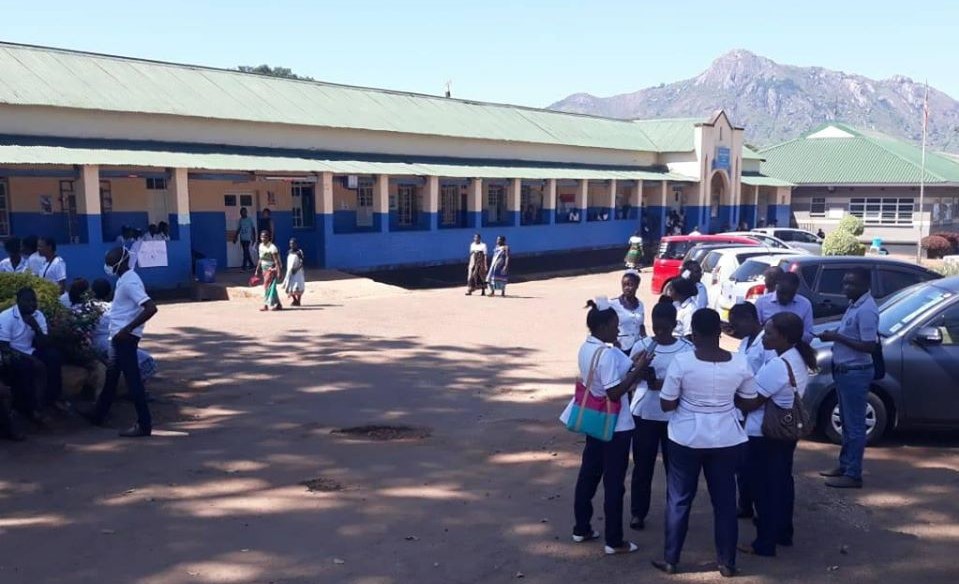Government to freecentral hospitals
Government has finally rolled out the central hospitals’ autonomy reform with Zomba Central Hospital (ZCH) becoming the first sovereign public health facility, a move health experts envision will improve healthcare provision.
The completion of the devolution process, which other central hospitals—Kamuzu, Queen Elizabeth and Mzuzu—are also going through, means management now has an increased authority on its key operational decisions while the Ministry of Health (MoH) will continue having oversight over the hospital.

Secretary for Health Dr Samson Mndolo confirmed the development in an interview this week, saying government has since appointed a Board of Trustees which awaits official announcement. But he could not give the timeline for the changes in the other central hospitals.
Over the years, the ministry had been implementing health sector reforms as part of the Public Sector Reform Programme with the autonomy of the country’s five central hospitals as one of the key reform areas.
Mndolo explained that while the new status implies that ZCH management would now be making decisions autonomously, government would continue allocating subvention until it becomes fully independent.
ZCH is now in the categories of other public trusts such as Central Medical Stores Trust (CMST) and the Malawi Blood Transfusion Service (MBTS), where MoH only plays an oversight role.
Said Mndolo: “The main mandate of central hospitals is the provision of tertiary services… So, autonomy will improve this.”
According to Mndolo, the Board of Trustees was already appointed with effect from June 28 2023.
He further said that, in addition to government subvention, ZCH will also be relying on its optional paying wings to raise money for its operations.
ZCH’s autonomous status has also excited the Parliamentary Committee on Health, whose chairperson Matthews Ngwale described the development as “very real”.
The Parliamentary Committee has been pushing for the central hospitals’ independence, arguing that successful implementation of the reform agenda would help improve service delivery in the health sector.
On Thursday, Ngwale visited ZCH to appreciate steps government has taken to fully turn the facility, which has about 600 beds, to self-determining.
Said Ngwale: “I met the hospital director [Dr Saulos Nyirenda] to find out where we are regarding the issue, because I am very passionate about it. He briefed me about the appointment of the board whose announcement is very imminent.
“I was happy because I thought politics was at play, but I have been assured that there is no politics at play. There have been several meetings with respect to the autonomy issue so, it is real and it is happening.”
In a separate interview, the ZCH director said although processes have not been finalised, he was delighted that decisions that were previously taking too long to be implemented would now be made quickly.
“We have never experimented this as a country but as a hospital we envisioned that service provision is going to improve in terms of efficiency thereby resulting in quality healthcare provision.
“But remember this is a process, so it doesn’t mean that after this things will automatically change on the ground. People may not see the products after a month or two.”
The director also said once the Board of Trustees is announced it will work with management to register the hospital so that it becomes a registered trust.
“This is a moment of excitement and high expectations from people who will now expect quality and improved services. But we are curious to participate in this as pioneers of hospital autonomy and deliver because everyone else will learn from us,” he said.
Health rights advocate Grace Febbie Ngulube observed the transition was a noteworthy step in healthcare management as it would potentially allow the central hospitals to adapt more quickly to local needs and improve decision-making processes.
Ngulube, who is also a global ambassador for Hervoice Fund and a member of Global Fund Youth Council, said the change suggests a greater level of decentralisation and accountability as central hospitals become more self-governing entities.
“The autonomy could lead to several positive impacts on health service delivery. Besides promoting quicker decision-making, it will improve resource allocation, and the ability to address local healthcare needs more effectively.
“Additionally, it will foster innovation and accountability as hospitals become more responsible for their outcomes,” she said.
But Ngulube said while it is important to acknowledge that autonomy can bring positive changes, the status also presents some challenges.
She said: “Effective implementation requires robust governance structures, financial transparency, and strong leadership to avoid any potential pitfalls.
“Additionally, monitoring and evaluation mechanisms will be essential to ensure that the intended benefits of autonomy are being realised and that healthcare standards are maintained or enhanced.”
The country’s public hospital system is organised into three levels which are primary, secondary and tertiary levels.
The primary healthcare level comprises the health centres and operates as units of district health offices while the secondary healthcare level is made up of the district hospitals.
The tertiary healthcare is made up of Zomba Zomba, Queen Elizabeth, Kamuzu, Mzuzu Central Hospital and Zomba Mental Hospital.
According to the National Health Policy 2018, due to decentralisation reforms, as provided by the Local Government Act (1998) and the Decentralisation Policy (1998), the primary and secondary healthcare levels were devolved to the district councils and accordingly, their parent is the Ministry of Local Government.
The decentralisation did not affect central hospitals as such their parent has remained in the Ministry of Health, hence; its direct involvement in health service provision that is inconsistent with the general provisions of the Decentralisation Policy and the Local Government Act. n





